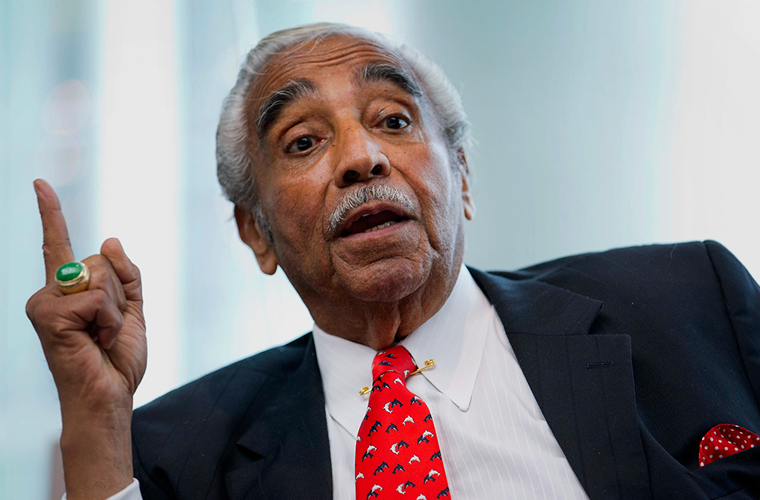Known in his Harlem, New York, district as the “Lion of Lenox Avenue,” Representative Charles B. Rangel rose to become the first African-American chairman of the powerful Ways and Means Committee. With a House career that spanned 46 years, Rangel—whose safe Democratic district provided him with seniority and stature on Capitol Hill—was one of the longest-serving Members of Congress in American history. And he is one of only two African-American Representatives to chair three separate committees.
Rangel helped found the Congressional Black Caucus in 1971, and was a staunch defender of inner-city economic development and international trade. His assignment to the Ways and Means Committee gave him considerable influence over America’s tax policy, and he shaped major bills that ranged from anti-drug policies to health care reform. Upon his retirement, Rangel reflected on his long career, noting, “Thank God I never had to decide between doing the right thing or being defeated at the polls.”
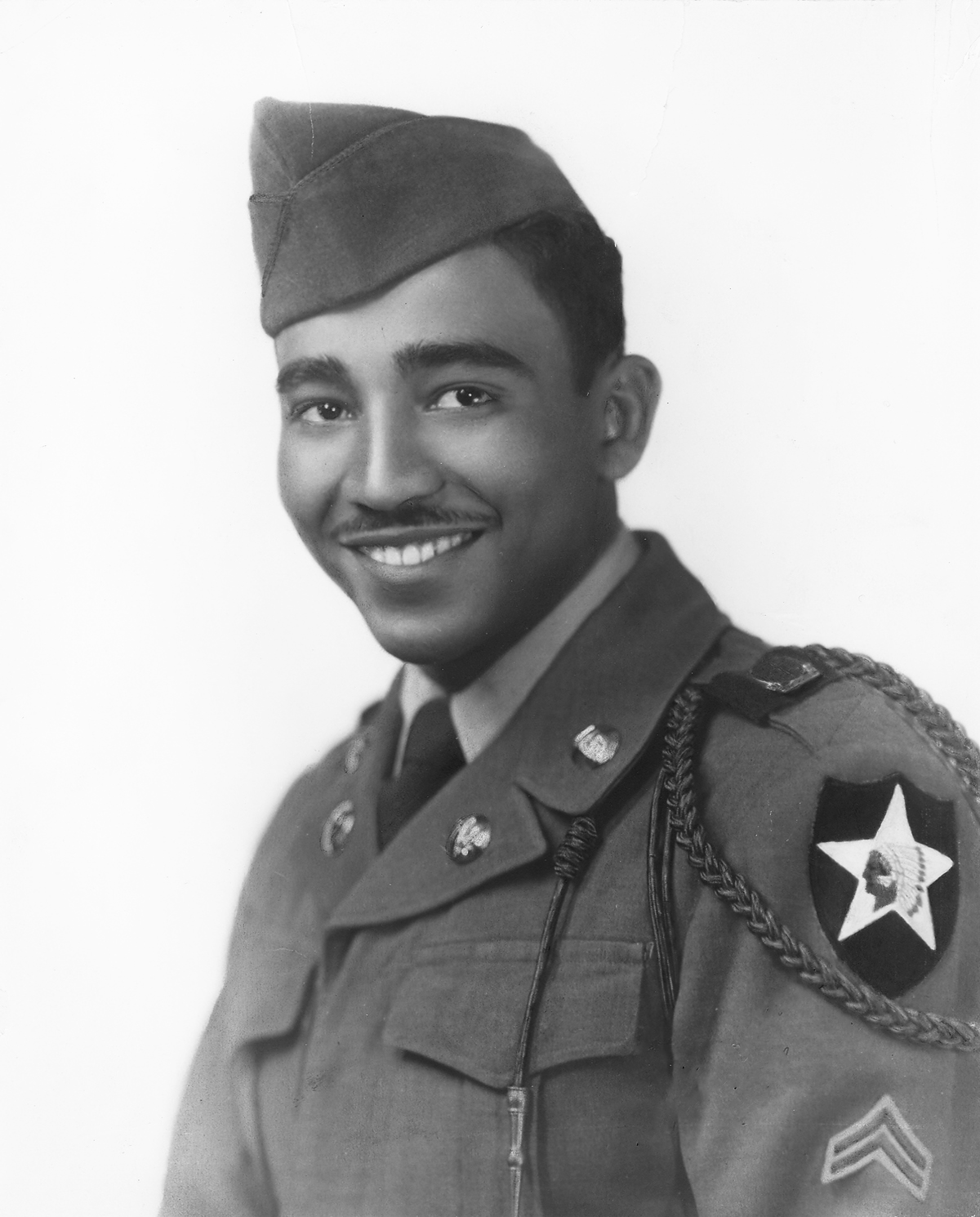
Charles B. (Charlie) Rangel was born on June 11, 1930, in Harlem, New York City, to Blanche Wharton and Ralph Rangel. The second of three children, he was raised by his mother and his maternal grandfather, Charles Wharton. From 1948 to 1952, Rangel served in the U.S. Army and was awarded the Bronze Star and the Purple Heart for his service in the Korean War when he led 40 U.S. soldiers from behind enemy lines despite being wounded himself. After returning to New York and graduating from DeWitt Clinton High School, Rangel earned a bachelor of science degree from New York University under the GI bill in 1957. Three years later, he completed a JD at St. John’s University Law School.
In 1960 Rangel passed the New York bar and began practicing law. In 1963, U.S. Attorney General Robert F. Kennedy appointed him Assistant U.S. Attorney for the Southern District of New York. He later served as an aide to the speaker of the New York Assembly and was counsel for the President’s Commission to Revise the Draft Laws. On July 26, 1964, Rangel married the former Alma Carter. They raised two children, Steven and Alicia.
After the war, Rangel became involved in the Civil Rights Movement, marching with Martin Luther King Jr. in Alabama from Selma to Montgomery. Combined with his work for the state assembly and for the New York City housing and redevelopment board, politics became a natural home. In 1966, he ran successfully for a seat in the New York state assembly, representing central Harlem. During his time in Albany, he forged a bipartisan friendship with Republican Governor Nelson A. Rockefeller.
During his time in the assembly, Rangel supported the renowned but embattled U.S. Representative Adam Clayton Powell Jr. whom he considered a mentor. Powell had represented the majority African-American district—encompassing Harlem, East Harlem, the Upper West Side, Washington Heights, and Inwood—since its creation in 1944. But by 1968, Powell’s extended vacations to the Bahamas amid multiple congressional ethics investigations had begun to swing public opinion against him. In 1970, Rangel, rather than get dragged down by Powell’s eroding reputation, challenged the congressman in the Democratic primary, partially out of “plain political survival.” Backed by New York Mayor and former Congressman John Lindsay, Rangel made the race all about giving Harlem “effective representation” which he claimed it had lost under Powell’s chaotic tenure. Rangel defeated Powell by only 150 votes in the primary that featured three other candidates, and he later prevailed in the general election. In his subsequent 22 general election campaigns, Rangel won by lopsided majorities of 80 percent or more.
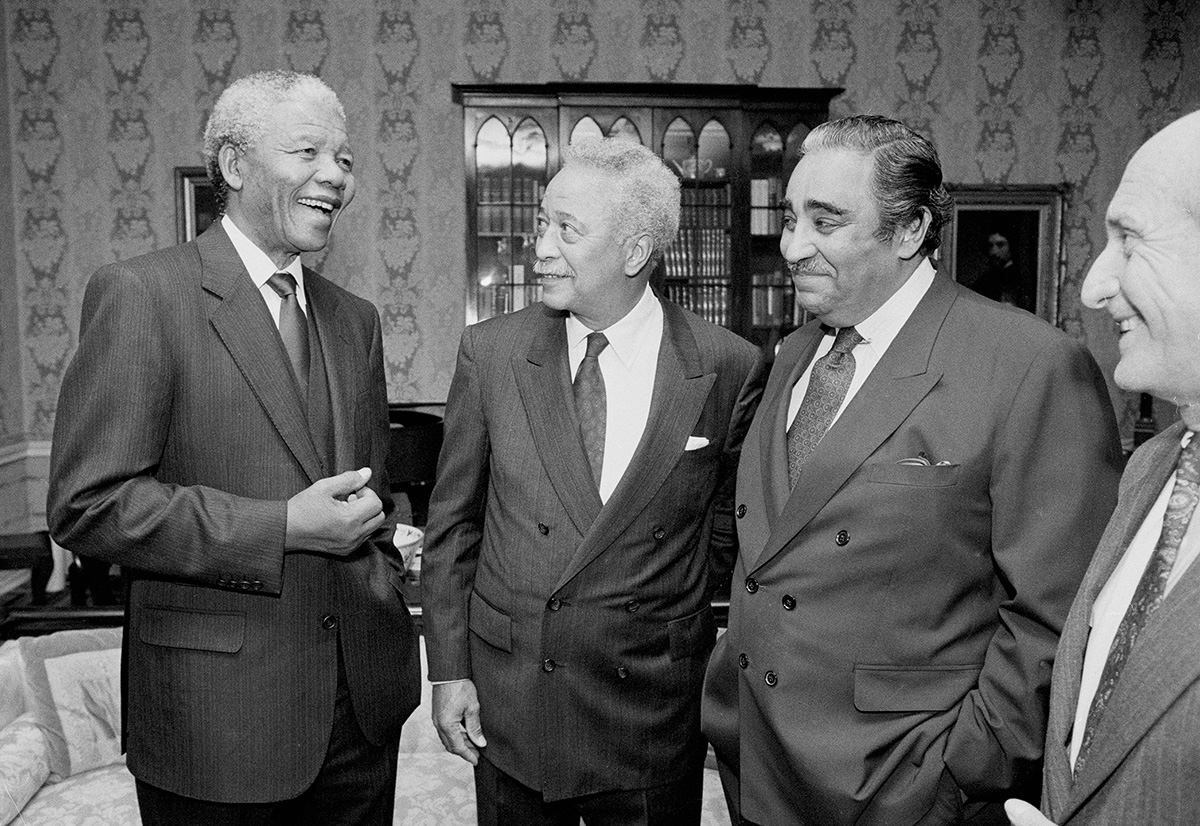
From the moment Rangel arrived for the opening of the 92nd Congress (1971–1973), Mayor Lindsay and Governor Rockefeller lobbied Ways and Means Chairman Wilbur Mills of Arkansas to give the new Congressman a seat on the committee. It took four years, but in the 94th Congress (1975–1977), he became the first African-American member of Ways and Means; 32 years later, in 2007, he became the first African-American chairman of the prestigious panel.
He was also assigned to the Select Committee on Narcotics Abuse and Control in 1975 and chaired that panel from the 98th through the 102nd Congresses (1981–1991). From the 104th through the 105th Congresses (1995–1999), and again in the 108th Congress (2003–2005), Rangel served on the Joint Committee on Taxation, before becoming chairman of the joint committee during the 111th Congress (2009–2011). Rangel co-founded the Congressional Black Caucus (CBC) in 1971, serving as the group’s chairman in the 94th Congress. Missouri Representative William Lacy Clay credited him with the name for the group because “protecting black interests was the primary reason most of us were elected.”
As chairman of the CBC in 1974, Rangel refocused the caucus on pursuing legislative goals specific to poor, urban, and African-American constituents. He emerged as a forceful critic of the drug trade and illicit drug use. He also focused on opening economic opportunities for minority groups and the poor. Using his seat on the Ways and Means Committee, he authored a 1993 provision providing tax breaks to promote investments and jobs in inner-city neighborhoods called “empowerment zones.” Rangel also authored the Low Income Housing Tax Credit in the Tax Reform Act of 1986 (H.R. 3838)—a measure that significantly boosted affordable housing in the United States. And as part of an economic stimulus bill to rejuvenate the U.S. economy after the terrorist attacks of September 11, 2001, Rangel extended unemployment benefits for workers in industries affected by the attacks, especially those in New York’s travel and hospitality businesses.
In 1987, Rangel contributed to the demise of apartheid in South Africa as the author of the “Rangel Amendment” which denied certain tax benefits to U.S. corporations working there. As U.S. businesses pulled out of South Africa, the country’s revenue streams dried up and the apartheid government grew weaker before collapsing amid democratic reforms. Thirteen years later, Rangel worked to open commerce with his historic African Growth and Opportunity Act, providing new incentives for U.S. companies to begin trading with sub-Saharan Africa. He also founded the Rangel State Department Fellows Program through Howard University in 2002, which aimed to significantly increase the representation of minorities in the U.S. Foreign Service.
In the early 2000s, Rangel’s work on behalf of social justice led to something of a controversial bill to reinstate the military draft, revisiting an issue he had worked on before his first House campaign. “How can anyone support the war and not support the draft?” he asked amid U.S. conflicts in Afghanistan and Iraq. He argued repeatedly that the government relied on disadvantaged and working-class enlistees to fight its battles. His bills to reinstate the draft never gained much traction; in fact, Rangel voted against his own bill in 2004, sending it down to defeat 402 to 2. Rangel insisted he did so to protest “procedural finagling.” In line with his concern for economically disenfranchised soldiers, Rangel sponsored the Heroes Earnings Assistance and Relief Tax (HEART) Act to provide additional financial help to America’s veterans. The bill became law on June 17, 2008.
During his long tenure on the Ways and Means Committee, Rangel frequently clashed with its chairmen, Democrats and Republicans alike. Rangel and the CBC quarreled with Chairman Dan Rostenkowski of Illinois on several occasions due to Rostenkowski’s relationship with Chicago Mayor Richard Daley, who often pushed for policies the caucus viewed as discriminatory and detrimental to African Americans. At a time when Members rarely went toe-to-toe with the powerful Rostenkowski, Rangel’s desire for independence and to serve as a voice for the CBC in conference committee deliberations often put him at odds with the chairman. Shortly after Republicans gained the majority in 1995, Rangel sparred with new Chairman Bill Archer of Texas over the elimination of tax preferences for minorities in the media. Frustrated Archer aides referred to Rangel as “a partisan through and through.”
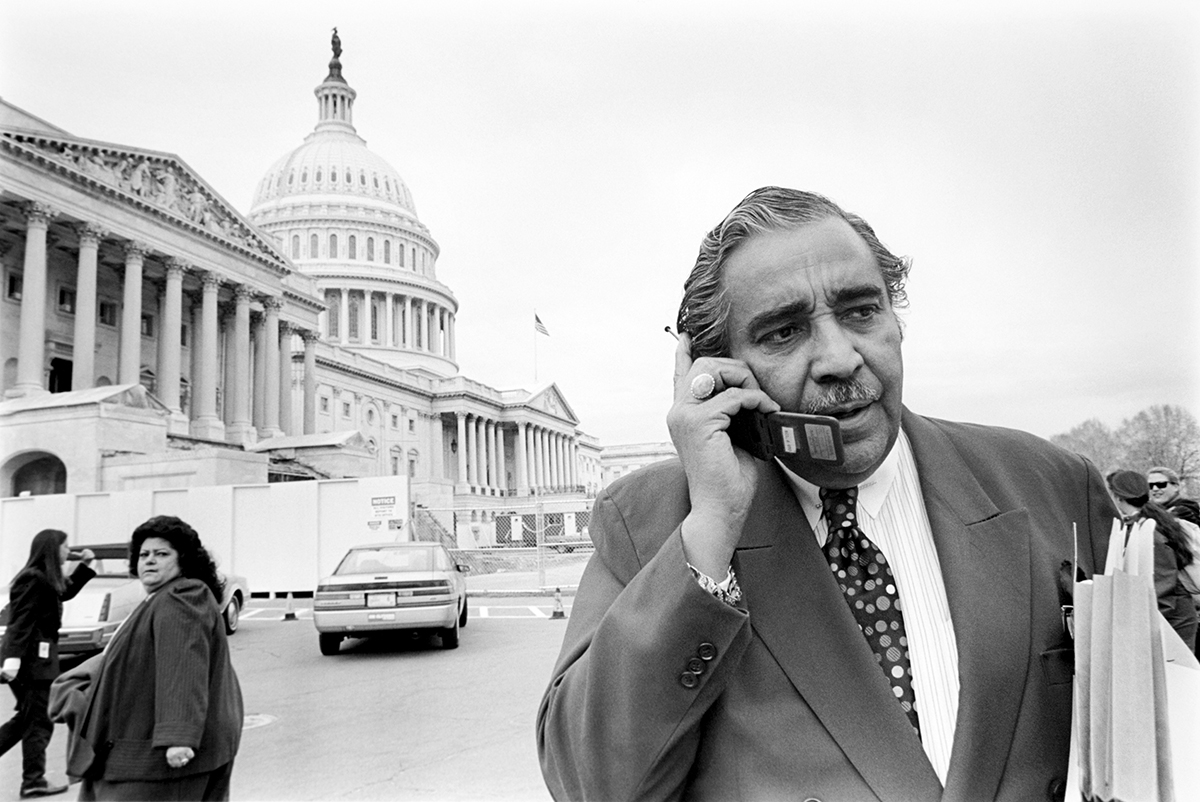
For his part, Rangel liked to stress that he found common ground on tax reform with Republican leadership despite rising partisanship in the House. But he struggled under Archer’s successor, Bill Thomas of California. Tensions boiled over late on a Friday in July 2003, when Thomas’s attempt to rush a bill through a committee led Rangel to sequester his fellow Democrats in the committee library to read the bill. Insults flew and Thomas’s staff, intending to boot Rangel and his colleagues from the room, summoned Capitol Police and the Sergeant-at-Arms. Tensions subsided and the committee left shortly afterward for floor business, but the fallout proved rancorous and led Thomas to issue an apology.
Rangel ascended to the chairmanship of Ways and Means when Democrats regained the majority in 2007. As chairman, Rangel worked in a bipartisan manner with Ranking Members Jim McCrery of Louisiana and later Dave Camp of Michigan to pass small business tax breaks, relief for Hurricane Katrina victims, and a ban on genetic discrimination for health insurance. He also worked alongside the George W. Bush administration on the Andean Trade Preference Act with Peru that reinforced labor and environmental standards. Though many in the CBC expected Rangel to push legislation important to the caucus (including hearings on reparations, gun control legislation, and action against racial profiling), Rangel insisted his position made him accountable to constituents outside the CBC. Rangel did address one important concern for the CBC with legislation pumping funds into the Gulf Coast after Hurricane Katrina. But he made it clear that the legislation was about economic fairness. “When God hit with Katrina, she didn’t give a damn about color at all,” he said, “but she sure did give the poor people a hard road to travel.”
As Ways and Means chairman, Rangel shepherded early versions of the Democrats’ landmark healthcare bill, the Patient Protection and Affordable Care Act. On July 17, 2009, he presided over a 16-hour markup that passed 23 to 18. Rangel joined his fellow Democrats in turning back 32 amendments from Republicans seeking to strip key provisions from the bill like the employer mandate and the tax surcharge. As the bill made its way through Congress, Rangel remained involved in high-level meetings with party leaders.
Rangel’s chairmanship was jeopardized and ultimately undone by a string of ethics violations. Reports emerged in July 2008 that Rangel had accepted rent-controlled apartments in New York at values far below market. Rangel defiantly requested an investigation of his personal finances. But additional allegations arose of improper use of office and failure to disclose or pay taxes on $500,000 worth of assets in the Dominican Republic. Rangel fought these claims every step of the way.
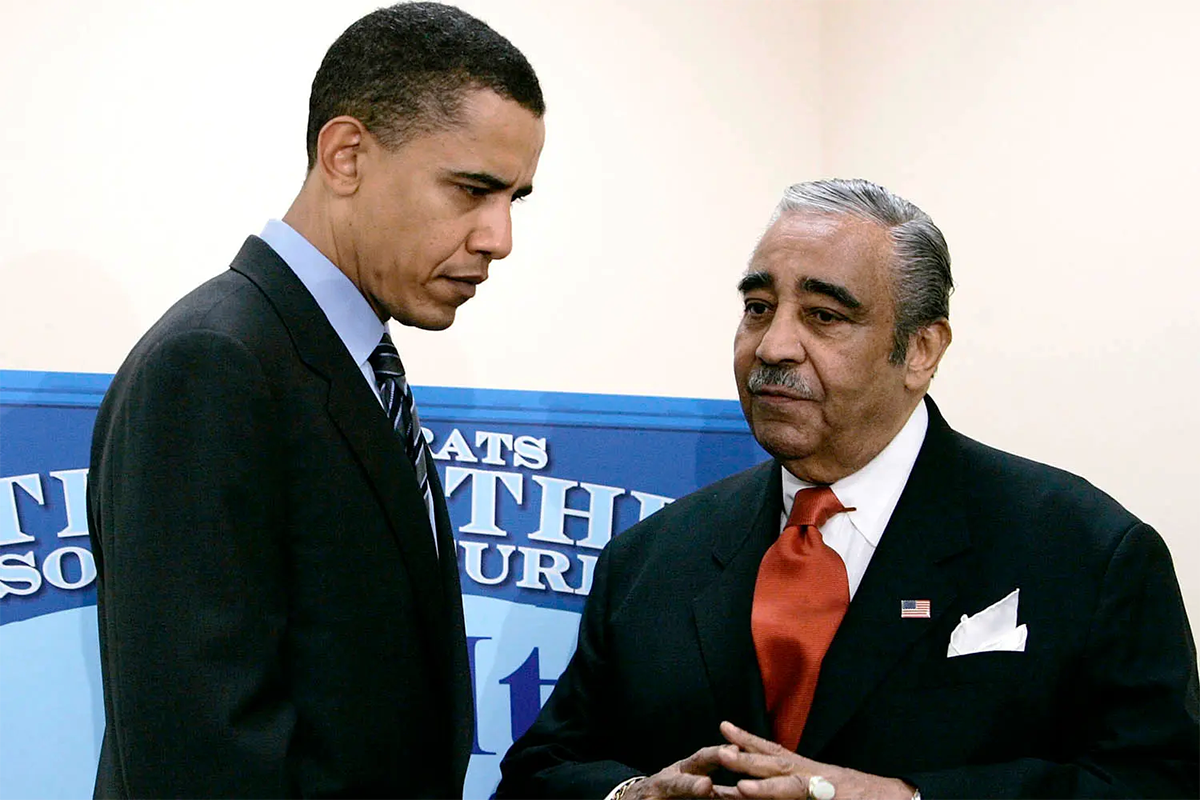
The investigation dragged on for two election cycles and threatened to distract from the Democrats’ high-profile push to reform the country’s healthcare system. “I don’t want anyone to feel embarrassed, awkward,” he would later insist in a speech on the House Floor in 2010. “Hey, if I was you, I may want me to go away, too. I am not going away. I am here.” Nevertheless, Rangel took a leave of absence as chairman just days before President Barack Obama signed the signature health care bill into law in March 2010. The leave of absence became permanent. The Ethics Committee found him in violation of 11 of the 13 charges and voted 9 to 1 to recommend that the House censure the Harlem Congressman. After the committee referred the matter to the full House in December 2010, Speaker Nancy Pelosi presided over the debate, with Zoe Lofgren of California prosecuting and Robert C. (Bobby) Scott of Virginia acting as Rangel’s defense. The House voted 333 to 79 to censure Rangel, making him the 23rd Representative to be censured in the history of the institution and the first in nearly 30 years.
Rangel’s ethical difficulties bolstered primary opponents. He faced five challengers in 2010 and lost the backing of the New York Times editorial board. Nevertheless, he captured 51 percent in the primary; his closest rival Adam Clayton Powell IV, the son of Rangel’s predecessor, won 24 percent. Redistricting radically changed Rangel’s old Harlem district in 2012, making it the majority Hispanic for the first time. Adriano Espaillat, a Dominican American, and state assemblyman hoped to take advantage of the district’s new dynamics. Rangel narrowly prevailed, winning 44 percent to Espaillat’s 42 percent. Espaillat unsuccessfully challenged the results in the state supreme court.31 Rangel’s vote total improved in a 2014 rematch, as he secured 47 percent of the vote against Espaillat’s 44 percent. Rangel cruised to victory in each general election.
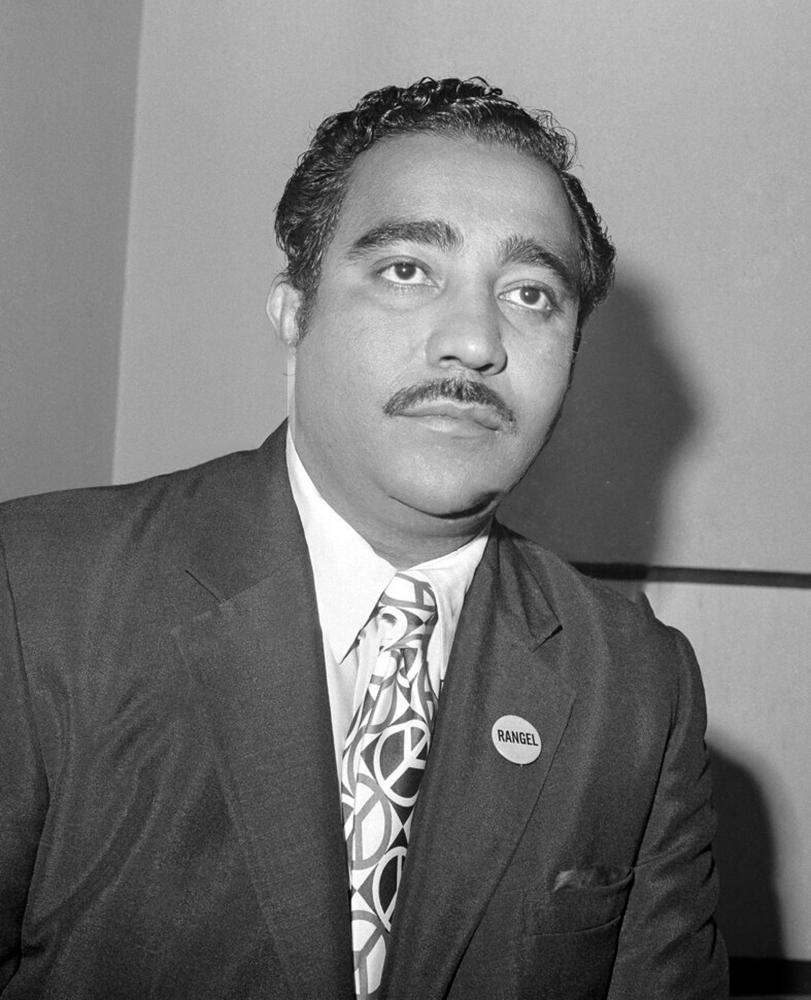
In the wake of his censure and with Democrats relegated once more to the minority in the House, Rangel’s influence waned. He remained an ex officio member of Ways and Means in the 112th Congress (2011–2013) before regaining full status in the 113th Congress (2013–2015). He served as Ranking Member on the Subcommittees on Trade in the 113th and 114th Congresses (2013–2017).
Rangel retired following the 114th Congress (2015–2017). Voting in the Democratic primary in June 2016, he told reporters, “This is the first time in 46 years I couldn’t find my name.

